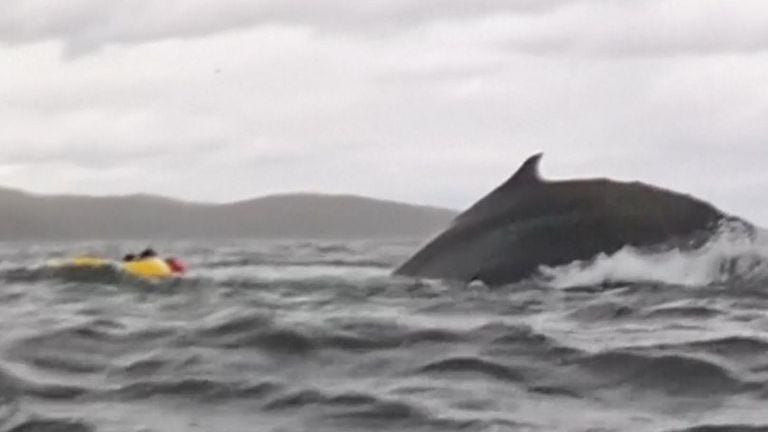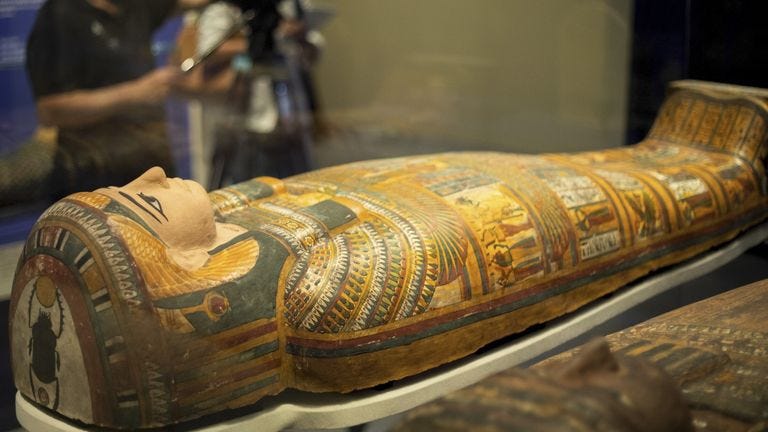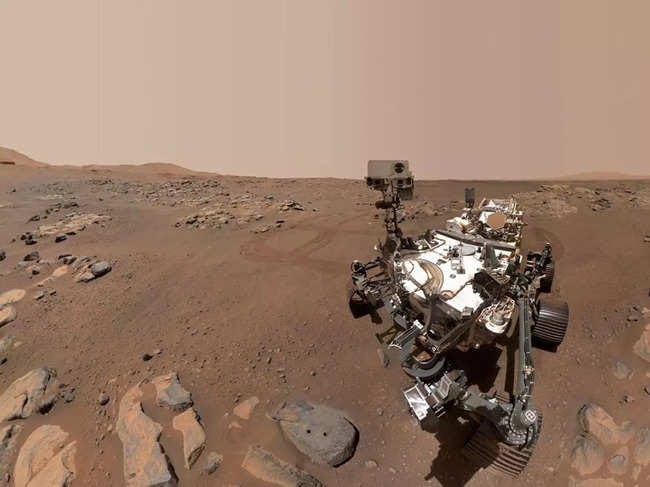Extreme Weekly #13
NASA's Groundbreaking News, Human Survival, Whale Consumption, Sweet & Spicy Mummies & More
February 16th 2025
Hello people, welcome back to Sunday’s letter! I hope you’ve smashed the week and are enjoying yourself.
Got some odd and interesting stuff to discuss this week so, let’s crack on!
01.🐋 Kayaker Survives Being Swallowed by a Humpback Whale
Now this is absolutely crazy. A kayaker in Chile had the experience of a lifetime after being briefly swallowed by a humpback whale. The man was paddling near the coast when the massive whale surfaced, engulfing him and his kayak before quickly spitting him back out.
Miraculously, he escaped unharmed, though understandably shaken. Experts say such incidents are extremely rare and accidental, as whales feed by lunging at schools of fish and sometimes scoop up unintended objects. This jaw-dropping encounter serves as a reminder of the sheer power and unpredictability of nature. Could you imagine this happening to you like dam!
02.⚡ Monkey Causes Nationwide Blackout in Sri Lanka
Sri Lanka recently experienced a bizarre and unexpected nationwide power outage and the culprit wasn’t a cyberattack or equipment failure, but a monkey. Authorities reported that the primate had tampered with critical electrical infrastructure, triggering a massive blackout that left millions without power.
While unusual, this isn’t the first time wildlife has caused large-scale disruptions. Incidents like this highlight the vulnerability of power grids to unexpected natural interference. As officials work to prevent future animal-induced outages, Sri Lanka’s latest blackout serves as a reminder that sometimes, even the smallest creatures can cause the biggest problems.
03. 🌿 Indigenous Man Reunites with Amazon Tribe After Years in Isolation
In a rare and emotional encounter, an Indigenous man in Brazil has returned to his tribe after spending years in isolation deep within the Amazon rainforest. The encounter happened on Wednesday, 12 February, in Bela Rosa, a community along the Purus River. The man, believed to be one of the last remaining members of his uncontacted group, was spotted in a remote village before being taken in by his people.
Experts say such reunions are extremely rare, as many isolated Indigenous groups avoid contact due to past violent encounters with outsiders. His return offers a unique glimpse into the survival skills, traditions, and resilience of uncontacted tribes, raising questions about the future of these communities as modern threats continue to encroach upon their lands.
How incredible is the ability to just be so isolated and survive for such an amount of time? I honestly find this so extreme and extraordinary.
04. 💰 OpenAI Board Rejects Elon Musk’s $974 Billion Offer
OpenAI’s board has turned down a staggering $974 billion acquisition offer from Elon Musk. The Tesla and SpaceX CEO, who was an early backer of OpenAI before parting ways with the company in 2018, had proposed the deal in an effort to take control of the leading AI research lab.
While the details of Musk’s intentions remain unclear, OpenAI’s decision signals confidence in its independent vision for artificial intelligence. The rejection also fuels ongoing tensions between Musk and OpenAI, as he has been a vocal critic of the organization’s shift toward commercialization. With AI advancing at an unprecedented pace, this battle for influence over its future is far from over.
05. 🌺 Ancient Egyptian Mummies Smelled Sweet and Spicy, Researchers Discover
New research has revealed that ancient Egyptian mummies had a surprisingly pleasant scent, described as a mix of sweet and spicy aromas. Scientists analyzing 3,500-year-old remains found traces of fragrant ingredients like beeswax, tree resins, and plant oils used in the embalming process.
This discovery sheds light on the sophisticated mummification techniques of ancient Egypt, where preservation wasn’t just about preventing decay but also about preparing the body for the afterlife in a sacred and aromatic way. It turns out the pharaohs weren’t just immortalized, they smelled great, too!
Quizzz
Q1: What was the first animal to be cloned?
Q2: Which planet has the most moons?
Q3: What is the deepest known point in the ocean?
Q4: Which material is known as the world's lightest solid?
06. 📜 Ancient Scrolls Burned by a Volcano Finally Reveal Their Secrets
For centuries, the Herculaneum scrolls. Ancient texts buried and charred by Mount Vesuvius in 79 AD have remained unreadable. But thanks to AI-powered imaging technology, researchers are now beginning to unlock their long-lost secrets.
Using advanced machine learning, scientists have deciphered Greek words hidden beneath the carbonized layers, revealing new insights into the philosophical and literary works of the ancient world.
This breakthrough could lead to the discovery of lost texts from some of history’s greatest thinkers, proving that even after nearly 2,000 years, history still has stories left to tell.
07. 🪐 NASA’s Groundbreaking Mars Discovery Could Unlock Solar System’s Origins
NASA has made a stunning discovery on Mars that could provide crucial insights into the origins of our solar system. Scientists analyzing Martian soil samples found evidence of ancient organic compounds that may have formed billions of years ago, offering new clues about the planet’s early environment and its potential to support life.
This breakthrough adds to growing evidence that Mars once had conditions suitable for life, reinforcing the importance of future missions to bring these samples back to Earth. As researchers dig deeper into the Red Planet’s past, they may uncover answers not just about Mars, but about how life itself began in our cosmic neighborhood.
08. 🦇 Scientists Discover Mexican Bat Saliva Could Aid Stroke Treatment
Researchers in Arizona have made a surprising discovery, an enzyme found in the saliva of Mexican free-tailed bats could help improve stroke treatments. The enzyme, known for its ability to break down blood clots, has the potential to enhance emergency care for stroke patients by restoring blood flow to the brain more effectively than current treatments.
Scientists are now studying how this natural compound could be developed into a life-saving drug. If successful, the bats’ unique biology could lead to groundbreaking medical advancements, proving once again that nature holds some of the most unexpected solutions to human health challenges.
Fire Facts
Space Smells – Astronauts describe the scent of space as a mix of hot metal and seared meat.
Giraffes and Lightning – Giraffes are 30 times more likely to be struck by lightning than humans due to their height.
Human-Bacteria Ratio – Your body contains more bacterial cells than human ones, with about 39 trillion bacteria living inside you.
Black Hole Abundance – Scientists estimate there could be millions of black holes in our galaxy, many of which remain undetected.
Venus Spins Backward – Unlike most planets, Venus rotates in the opposite direction, causing the Sun to rise in the west and set in the east.
Quiz Answers
Q1 - A frog
Q2 - Saturn
Q3 - Mariana Trench
Q4 - Aerogel
Thanks for reading! Make sure to tell me what you think.





